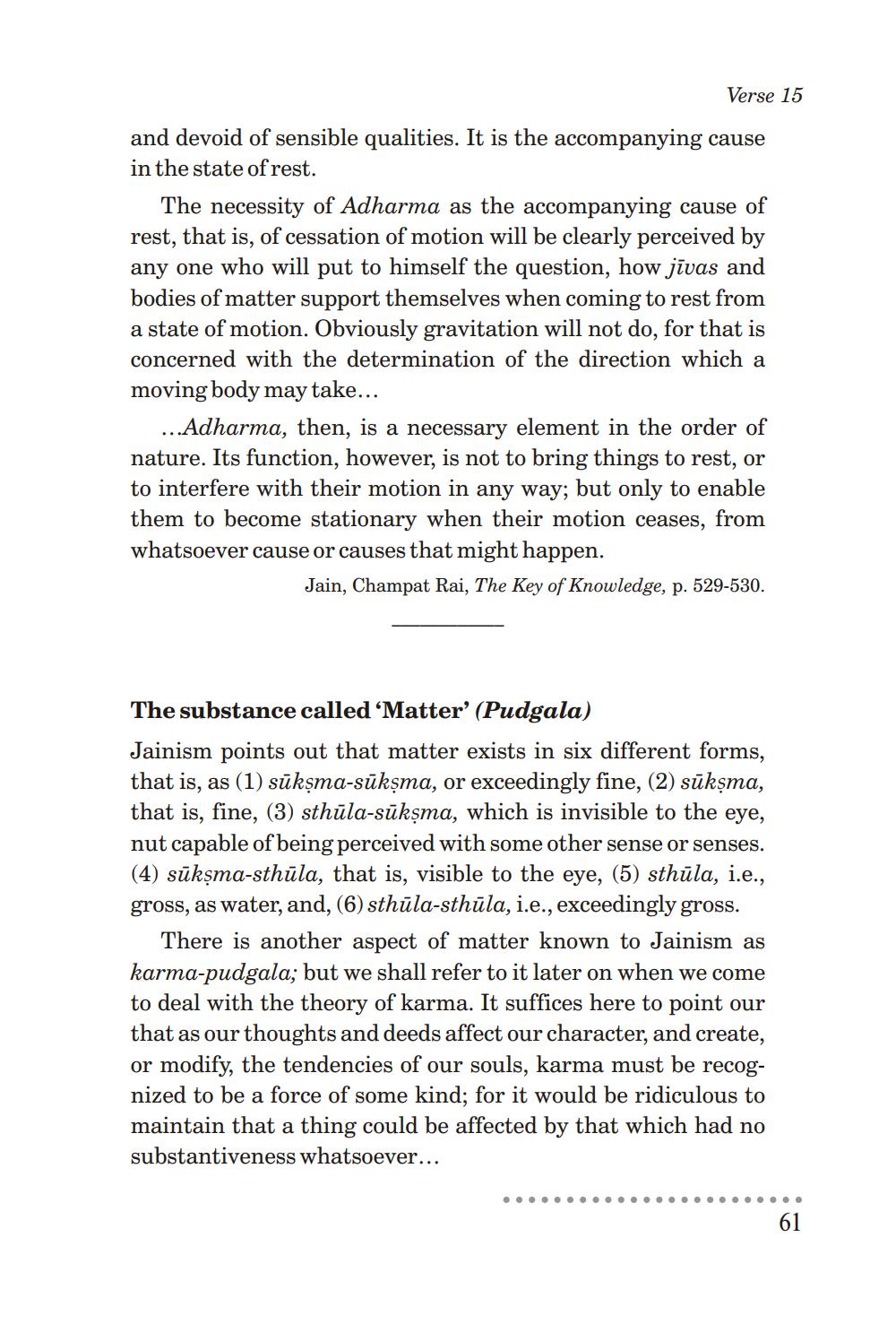________________
Verse 15
and devoid of sensible qualities. It is the accompanying cause in the state of rest.
The necessity of Adharma as the accompanying cause of rest, that is, of cessation of motion will be clearly perceived by any one who will put to himself the question, how jīvas and bodies of matter support themselves when coming to rest from a state of motion. Obviously gravitation will not do, for that is concerned with the determination of the direction which a moving body may take...
...Adharma, then, is a necessary element in the order of nature. Its function, however, is not to bring things to rest, or to interfere with their motion in any way; but only to enable them to become stationary when their motion ceases, from whatsoever cause or causes that might happen.
Jain, Champat Rai, The Key of Knowledge, p. 529-530.
The substance called “Matter' (Pudgala) Jainism points out that matter exists in six different forms, that is, as (1) sūkşma-sūkşma, or exceedingly fine, (2) sūkşma, that is, fine, (3) sthūla-sūkşma, which is invisible to the eye, nut capable of being perceived with some other sense or senses. (4) sūksma-sthūla, that is, visible to the eye, (5) sthūla, i.e., gross, as water, and, (6) sthūla-sthūla, i.e., exceedingly gross.
There is another aspect of matter known to Jainism as karma-pudgala; but we shall refer to it later on when we come to deal with the theory of karma. It suffices here to point our that as our thoughts and deeds affect our character, and create, or modify, the tendencies of our souls, karma must be recognized to be a force of some kind; for it would be ridiculous to maintain that a thing could be affected by that which had no substantiveness whatsoever...
61




